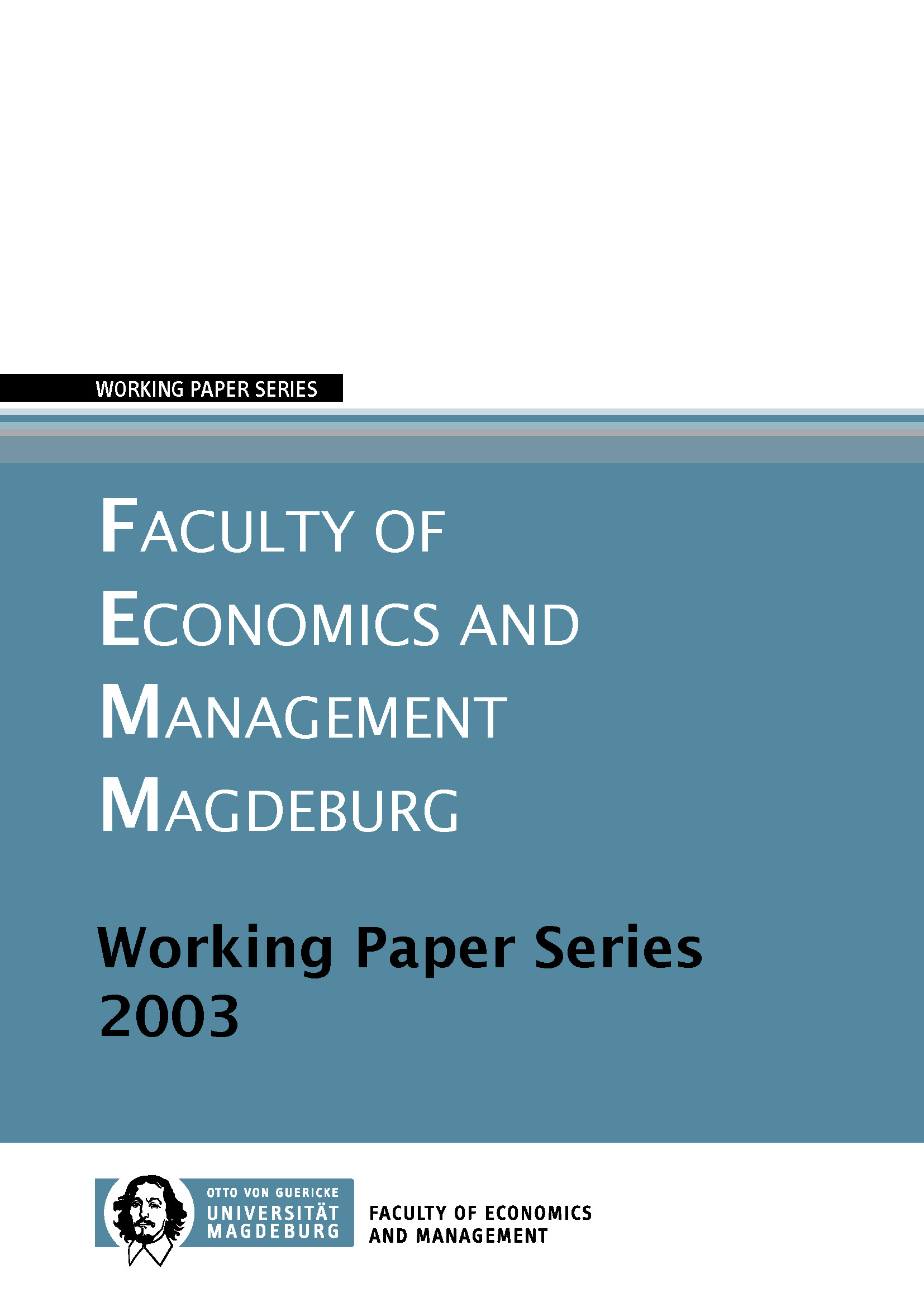Entry Decisions and Bidding Behavior in Sequential First-Price Procurement Auctions
An Experimental Study
Schlagworte:
experimental economics, sequential auction, first-price procurement auctionAbstract
Though many real life auctions are run independently of each other, from the bidders' point of view they often form sequences of auctions. We investigate experimentally how behavior responds to the additional incentives that are present in such auction sequences. Comparing subjects' decisions in single first-price procurement auctions with their decisions in a game consisting of two subsequent first-price procurement auctions, we find that, in line with the theoretical prediction, entry and bidding behavior is crucially affected by the opportunity cost of early bid submission. Though, entry decisions and average bids in the auction sequence deviate from the perfect Bayesian equilibrium prediction. While the nature of the opponent (human being or computer) has no significant effect on theses findings, giving subjects additional feedback on winners and prices seems to reduce the deviations from the equilibrium prediction.


